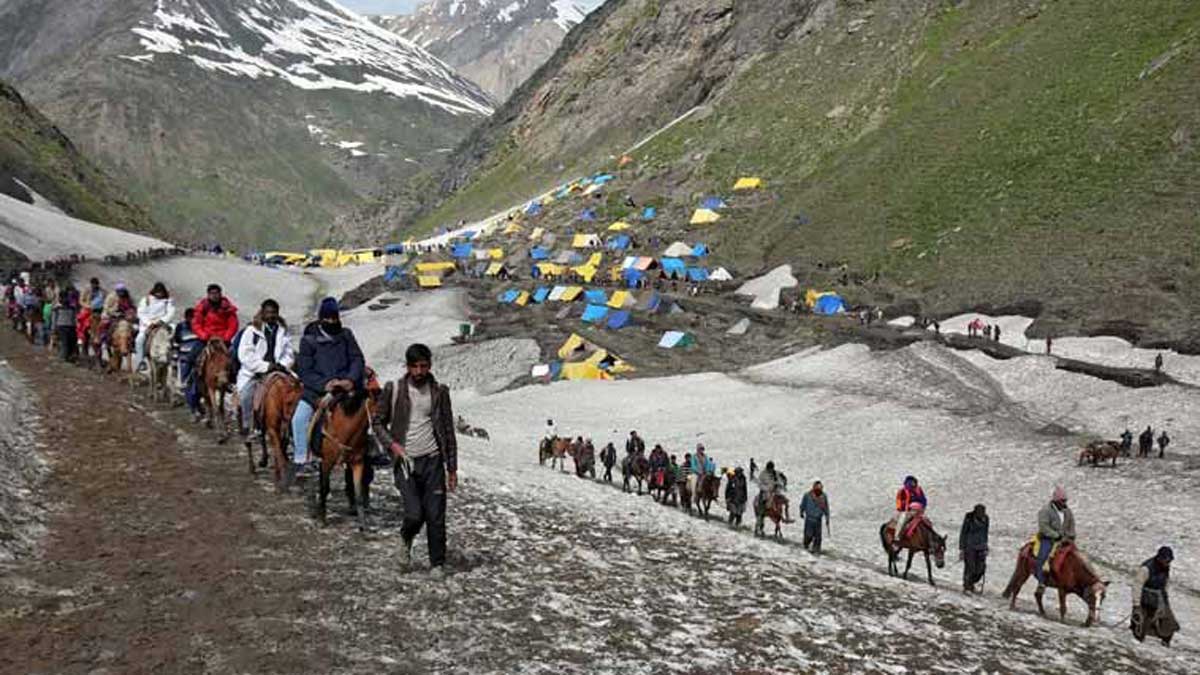Amarnath Yatra goes high-tech: Top-of-the-line facial recognition, RFID tagging and more security measures in place
 (File) Pilgrims trek through mountains to reach the Amarnath cave shrine | Reuters
(File) Pilgrims trek through mountains to reach the Amarnath cave shrine | Reuters
The authorities have implemented the most advanced security system for this year’s Amarnath Yatra, which begins later this week, on July 3 2025. The annual pilgrimage, which spans 38 days, will conclude on August 9 2025.
These strong measures follow the deadly terror attack in Pahalgam on April 22, which raised concerns about the safety of the pilgrims.
The yatris travel to the Amarnath cave shrine in Anantnag, in south Kashmir, with Pahalgam and Baltal, and Sonmarg in Ganderbal acting as the base camps.
Technology for security
According to reports, for the first time, facial recognition systems (FRS) have been installed on both the Pahalgam and Baltal routes. These cameras are connected to a database containing photos of known militants and suspects.
All pilgrims and vehicles must now use Radio Frequency Identification (RFID) tags. These tags help track their location in real-time, allowing security teams to respond quickly if someone goes missing or an emergency occurs.
Hundreds of CCTV cameras have also been installed along the route, in camps and at checkpoints. In some places, artificial intelligence (AI) is being used to detect unusual behaviour or suspicious movement.
No-fly zone and strict checks
The entire Yatra area has been declared a ‘no-fly zone’. Drones and other unmanned flying objects are banned from July 1 to August 10.
After the Pahalgam attack, security has been further tightened. A three-layer security system is now in place around base camps, along the yatra route, rest areas, and nearby forests.
In Jammu, where many pilgrims begin their journey, the police have set up joint checkpoints at key locations, including highways, city outskirts, and near the Bhagwati Nagar base camp. These will remain active 24×7 throughout the Yatra.
Security forces will conduct checks, surveillance, and identity verification. Police have been instructed to remain vigilant while also treating pilgrims with respect.
Emergency preparedness
A major mock drill was recently held at the Yatri Niwas Base Camp in Jammu to check how ready the security forces are.
Different agencies worked together to practise emergency response. A full briefing followed to improve coordination and planning.
Sci/Tech